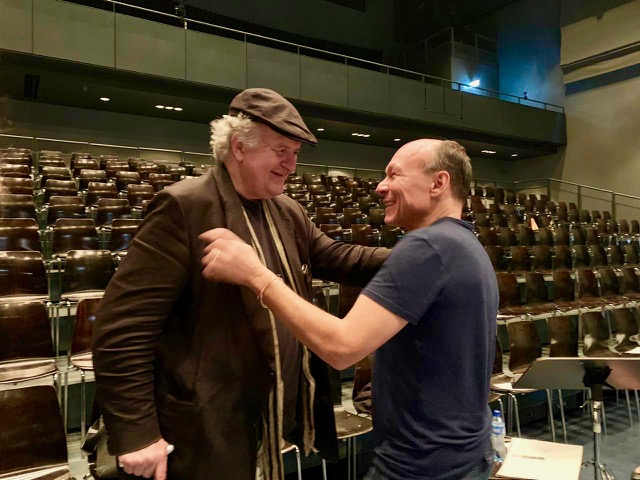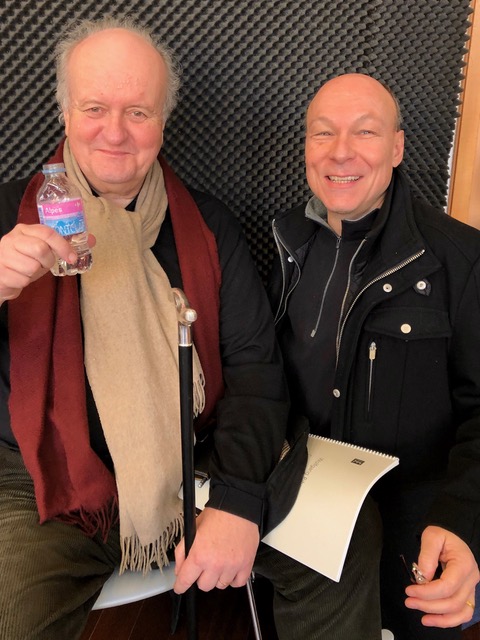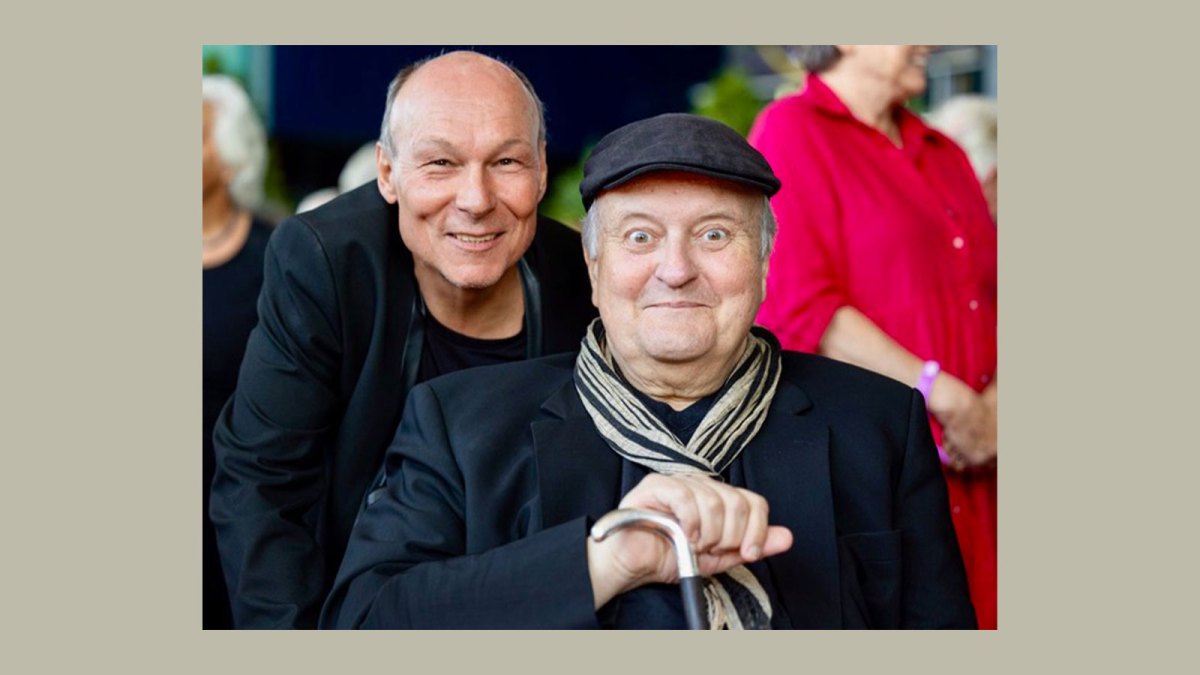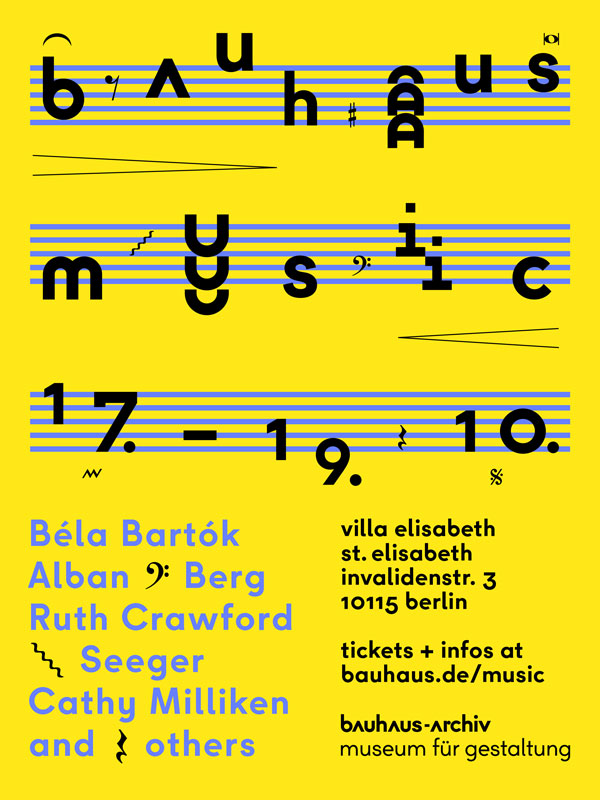The composer Wolfgang Rihm died on the night of July 27 at the age of 72. His friend, the Swiss composer Dieter Ammann, was in close contact with him until close to the very end.
The two artists have known each other for nearly 30 years. Rihm once described Ammann’s music as “never idle, always alive, and in the most beautiful sense overgrown with powerful lines—lines that remain powerful and uninterrupted even when they are heading in opposite directions.” But Ammann emphasized that Rihm was, in a way, describing his own music with that sentence too; The two men were friends but also aesthetic comrades. We exchanged emails and texts on Rihm before meeting on Zoom to talk about the composer’s final days, his “gut level” approach to composition, and the way his oeuvre reflects his personality.
VAN: How are you?
Dieter Ammann: Alright. I’ve just started to really feel the void. When I was commuting between Zofingen [where Ammann lives, in Switzerland] and Karlsruhe, Rihm was still there, mentally. You could still communicate, even if it was just with a smile, a squeeze of the hand, or a silly gesture—because as long as he had moments where he was conscious, he still had his humor. Now it’s like an open end. There’s a beautiful book, Offene Enden [Open Ends], about his music. The end is open, and the emptiness is painful.
For over 30 years, we talked. Not just about professional or artistic stuff, but about all aspects of life. Relationships that cover everything like that are extremely rare, and this was with a person who was unbelievably knowledgeable and had the ability to connect and make associations that you’d never come up with on your own. It was so fulfilling and enriching for the soul.
My daily life is now reflected in my composing. Weeks ago, I noticed that my viola concerto, which was highly energetic, suddenly and abruptly slowed down. I’m writing so many falling intervals, many downward seconds—which is nothing earth-shattering, of course, but the sheer number of them… And now I’m trying to pursue that consciously and to compose this inner emptiness in a way that doesn’t need to be questioned intellectually.
When my father died, it had similar implications for the piece that I was writing then, “The Freedom of Speech,” which I dedicated to him. The sense of loss feels familiar.
You spent time with Rihm up until shortly before his death. What was that like?
In January we were still working together, intensely. We were laughing a lot; he was an incredibly funny person. What he didn’t like was how I’d always start our conversations by asking how he was doing. He found that tiring. “What should I say? It’s alright, it is what it is.” He had an incredibly healthy fatalism, without a trace of negativity.
In the last few weeks my visits were marked by illness. At the end, you often had to wait two or three hours for one of those moments in which you could talk to him. In those times I talked to the other people who were there, especially his wife Verena. Markus Hechtle, who co-taught his composition class in Karlsruhe, was also there until close to the end. [The composer] Winrich Hopp said that Wolfgang was in an in-between place and was just returning now and then. That was a beautiful image. Those visits were marked by the moments where we could speak, which we had to wait for.

In an email to me, you wrote that Rihm’s work “is life poured into sound, with incredible intellect of course, but also with the lower body—and everything in between.” Where or how do you hear the “lower body” in Rihm’s music?
I used the term of lower body in opposition to ratiō; the thinking, reflecting aspect of the intellect. His music allows many things within a small space, and not in a structural-logic order—it’s gut level. He made decisions from the gut and aimed them at the gut. I don’t mean his intention: Wolfgang would never have thought, “When I write this, the effect will be like that.” That was completely foreign to his nature. But the expressivity and power of his pieces is definitely aimed at the gut. Like there might be a perfect fifth, and then a crash of thunder that destroys everything and reveals a different scenery. That’s what I mean with “gut level.”
A lot of contemporary music squeezes everything it can out of a single atmosphere, a homogenous, almost hermetically pure, sealed-off world. That’s completely different in Wolfgang’s music.
The latest from VAN, delivered straight to your inbox
Do you have a sense of what the most important pieces were for Rihm, and whether they were different from the “classic” Rihm pieces that composition students learn?
There are many pieces that are headed somewhere, like the “Vers une symphonie fleuve” series. There are the apotheosis pieces inside an aggregate, where you can say, “That’s probably the masterpiece among those 20 pieces.” And there are a lot of leftover pieces, things that remain, things that he overwrote. He wrote a trumpet concert where he took an ensemble piece and wrote a trumpet line over it. He had that overwriting process, which is something I could never do. For me, everything I notate has to be in its most ideal possible form.
He spoke of his pieces being in “conditions.” I remember him saying about “Jagden und Formen”—which I consider one of the most important instrumental works of the last 50 years—“You didn’t even hear the most recent ‘condition’!” I answered, “I hope you didn’t extend the slow parts.” [Laughs.]
He had a different understanding of the work than I do. His was more flexible, and he probably wasn’t thinking with every piece, This has to be the thing. Instead, he had a need to write things that weren’t necessarily fully baked or searching for perfection—perfection doesn’t exist in art, thank God. I don’t think it was important to him to consider the place of an individual piece within his output. Instead, the piece he was writing at that moment was probably always the most important one.

Young composers can’t meet Rihm anymore; they will encounter him through his music. What would you tell them about Rihm as a person?
Probably the same exact things the music conveys. With him, there’s a lot of overlap between the music and the personality. His music is spontaneous and so was he. It’s extremely active and reactive. Of course, what people say is that with Rihm everything was big—he was tall, he was wide, the oeuvre is large. But I mean more than that: his “inclusive composition,” as he called it himself. It has nothing at all to do with poly-stylistic writing. Instead, everything he touched became Rihm—no matter what material he worked with.
His was such an all-encompassing personality, and he cared about the people around him feeling comfortable. He was a humanist in the best sense. His music is incredibly humanist: Humanist in the sense that it’s tangible, that it communicates outwardly—and inwardly. He often used terms like “affection” and “sympathy.” And it was easy to feel affection for him, both for his personality and for his music, because both gave so much back.
Of course not all his pieces are like that. With 450 works, you can only describe currents, especially because his work went through different phases. It’s like comparing Stravinsky’s “Agon” and his Three Pieces for String Quartet [from 1914.] You’d ask, “Were they written by different people?” But at the end—at the atomic level—you can tell it was one and the same person. ¶
Subscribers keep VAN running!
VAN is proud to be an independent classical music magazine thanks to our subscribers. For just over 10 cents a day, you can enjoy unlimited access to over 875 articles in our archives—and get new ones delivered straight to your inbox each week.
Not ready to commit to a full year?
You can test-drive VAN for one month for the price of a coffee.


